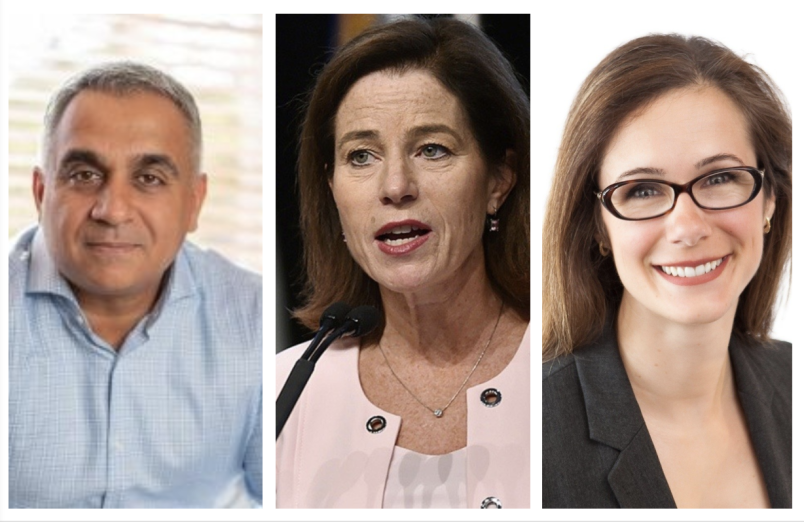Three of B.C.’s biggest cities are aiming to improve transparency and conflict of interest mitigation mechanisms; however, the province’s minister responsible for municipalities has yet to commit to improving at least one key anti-corruption measure.
While Surrey is planning to become the first B.C. municipality to establish an independent ethics commissioner, both Vancouver and Richmond have had conflict of interest at top of mind recently, including at last month’s Union of B.C. Municipalities (UBCM) conference.
“Canada is experiencing a trend of increasing codification of ethical conduct at the local government level,” a staff report to Surrey council stated last June.
“At present, there is no legislation in British Columbia mandating a specific type of ethical framework for municipalities.”
The UBCM endorsed Richmond’s resolutions to establish a province-run municipal lobbyist registry as well as a possible municipal conflict of interest commissioner.
A Vancouver UBCM resolution to “encourage” municipalities to adopt conflict of interest rules was not endorsed by members, however, although Coun. Colleen Hardwick introduced a motion this week to establish an independent auditor general at city hall.
“The City of Vancouver is the only major Canadian city that does not have an Auditor General’s office (or a comparable “City Auditor” office) that is independent of the City’s management – one that is capable of providing an essential layer of independent financial and performance oversight of the City’s financial and operational affairs,” stated Hardwick’s motion.
Concerns about transparency have been ongoing Vancouver’s city hall for some time. At the 2018 UBCM conference, Vancouver introduced a resolution to improve financial disclosures for elected officials after complaints were raised about then-councillor Hector Bremner’s employment with public relations firm PACE Group, which has clients in real estate that frequently have rezoning and building permit applications processed.
No wrongdoing was found on Bremner’s part, but the UBCM resolution raised the fact annual financial disclosures don’t require elected officials to list the private interests or clients of their employers (in Bremner’s case, he was only required to list PACE Group as an employer).
The resolution called for an amendment to the Financial Disclosure Act to list all financial interests.
Glacier Media has raised questions about the Financial Disclosure Act with Minister of Housing and Municipal Affairs Selina Robinson — namely that the act does not specifically require municipal government employees, such as senior managers who approve procurements, to file annual financial disclosures (listing assets and property owned in the region). Rather, the act only calls on employees to file if the municipality designates them to do so. As such, up until recently, the City of North Vancouver and Richmond had no bylaw or policy to designate staff under the act. The former has had its former CAO, Kenneth Tollstam, become the subject of an ongoing B.C. Securities Commission investigation into alleged fraud and illegal share distributions. Tollstam was actively promoting junior stocks during his employment with the city, something that is legal but would have needed to be disclosed to council under the act, if the city had employees designated under the act. The city has since passed a bylaw designating three senior managers to file disclosures. Last year, Vancouver added to its list of senior managers designated to file disclosures.
Meanwhile, Richmond is drafting a policy to do the same; Mayor Malcolm Brodie said about half a dozen senior managers will be designated.
The act also governs provincial government employees. Much like municipal employees, provincial staff must be designated to file annual financial disclosures by the Attorney General. When Glacier Media raised questions about why no senior assistant ministers are presently designated to file, Attorney General David Eby committed to a legislative review of the act next year. But despite multiple requests for comment, Robinson has yet to indicate whether the “designation” should become a requirement for municipal staff.
The act does require elected officials to file annual financial disclosures. At UBCM, a third Richmond resolution, to expand asset disclosures to direct family members, was rejected.
Richmond Coun. Kelly Greene spearheaded Richmond’s resolutions, claiming the public is losing confidence in the political process.
Richmond had its own conflict of interest issues in recent years, when two councillors, Derek Dang and Ken Johnston, were actively buying and tearing down houses to develop townhouses before being unelected in October 2018. The two recused themselves of rezoning votes directly related to their properties but continued to vote on broader housing policies.
Richmond’s desire to establish either a municipal conflict of interest commissioner or expand the scope of the BC Conflict of Interest Commissioner to municipalities stems from the fact, as stated in its resolution, that “the only remedy for a citizen complaint of a municipal elected person’s conflict of interest is through a judgement of the Supreme Court of British Columbia.” Richmond council itself barely passed the UBCM resolution in a 5-4 vote.
Meanwhile, Surrey is not waiting on the province to improve transparency, having voted in favour of establishing an ethics commissioner to oversee possible conflicts of interest.
Coun. Jack Hundial said the commissioner could prove valuable in years to come as Surrey continues to be the fastest growing city in the province.
At the same time, Surrey is also examining its lobbyist registry, which is voluntary and does not list who is meeting with whom.
“While the voluntary Lobbyist Registry does increase transparency, it is difficult to assess its efficacy in curtailing unethical conduct,” stated the report.
Richmond’s endorsed resolution asks “that a lobbying regulation system for municipal government, similar to the provincial mechanism under the BC Lobbyists Registration Act, be established.”
A response from the provincial government in 2017 to a similar request states the apparent problem in a do-it-yourself registry: “Current authorities do not allow local governments with a registry the ability to enforce compliance. If local governments, through UBCM, express interest in establishing mandatory lobbyist registries, the province is willing to discuss the matter further.”
— Graeme Wood, Glacier Media



